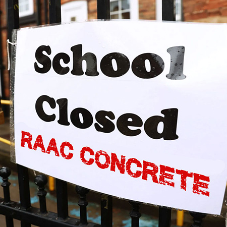According to research carried out by various professional bodies, the construction industry is facing worrying skills gaps, which could potentially threaten various building projects due to take place over the next few years. So what can be done to ensure that the UK construction industry overcomes this threat and continues to thrive in future years? I have decided to take a look at what measures are being put in place to safeguard the future of UK construction, and the potential dangers we face if those measures are not acted upon.
According to a study by The Prince’s Trust and HSBC, 77 per cent of business leaders in the construction sector fear a skills shortage will slam the brakes on the UK’s economic recovery. It seems a lack of qualified candidates is a grave concern, and there have been calls for employers to invest in vocational training for unemployed young people as a way to negate the skills shortages. So what can be done to ‘stop the rot’ and ensure future generations have the ability to thrive in construction?
One obvious measure which could be of benefit to all parties would be a concerted effort from employers to encourage young unemployed people into work, in a type of apprenticeship scheme. This has already started to move forward with Costain, Balfour Beatty and HSBC all working in connection with The Prince’s Trust in an effort to upskill the workforce of the future. This has been well received with the companies mentioned urging others in their industry to take action and prevent the skills crisis from becoming a complete catastrophe.

Another problem may be that those in the industry are blasé about the actual impact a skills shortage could have on the future. However there is more than enough reason to be concerned. According to one recent report by accountants KPMG and the London Chamber of Commerce and Industry (LCCI), about 20% more construction managers, surveyors, electricians and other trades will be needed to meet demand, over the next four years, than were needed from 2010-13. It is unlikely house building targets will be met as a result.
Whilst the above numbers are worrying, there are companies who are recognising this issue and that can only be positive. It is always easier to identify a problem, coming up with solutions to the problem can be the sticking point. The fact that solutions are being offered, and the skills shortage is being debated means that the signs are good something can be done to ease this potential crisis. It is essential the construction industry unites and overcomes this threat, so we can see more beautiful buildings grace our city skylines in the near future and beyond.
With the uncertainty surrounding the next government and how that could effect the construction industry now over, the one factor many industry professionals believe could still hamper the construction recovery remains the skills shortage. Brian Berry, the trade association’s chief executive, said a skills shortage continued “to loom large over our industry”. Chancellor George Osborne announced plans to introduce a levy on large employers to fund apprenticeships, and this may be one way to tackle the problem. However this still leaves the issue of how the training in smaller firms will be handled. Whilst things are certainly looking up in construction, it seems the skills shortage remains a black mark on the horizon.
This problem has now grown to record levels. According to research by the Federation of Master Builders, a shortage of construction workers faced by small and medium-sized businesses has hit its worst level on record, threatening the Government’s grand plan to build hundreds of thousands of houses annually. The big issue now is who is going to build these new homes that are so badly needed and have been proposed by the Government?
Of course Brexit is intrinsically linked with the current skills gap issue. Many industry leaders are calling on the Government to ensure the free movement of people after Brexit, so the UK doesn't miss out on skilled labour from the EU. Tony Pidgley, chairman of housebuilder Berkeley Homes, said:"If you ask any housebuilder what their main challenge is, they say it’s labour availability". With the current uncertainty showing no signs of dissipating, the skills shortage remains a very current and real threat to the UK construction industry.
Related Blog Articles



crop192.png)












